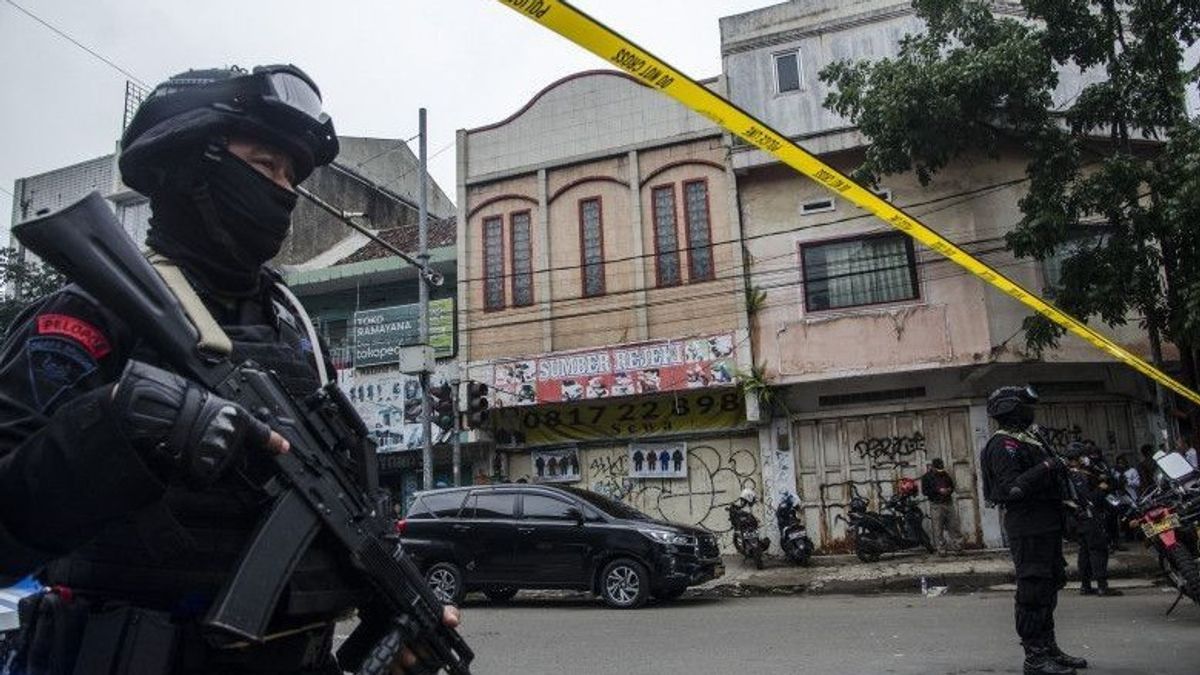YOGYAKARTA The suicide bomber at the Astanaanyar Police Headquarters, Bandung City, West Java on Wednesday, December 7, was apparently carried out by a former terrorist convict. He was only released in September 2021. On the other hand, the Government has a deradicalization program for terrorist convicts. Deradicalization is one of the programs to neutralize radicalism.
In the Big Indonesian Dictionary (KBBI), the meaning of deradicalization is the practice of encouraging adherents of radical religious or political ideologies to adopt a more moderate view.
On the site bnpt.go.id, it is explained that deradicalization is an effort to reduce and eliminate radical ideas possessed by a person. The program was held by the National Counterterrorism Agency (BNPT).
The purpose of the deradicalization is to neutralize ideas that have previously been exposed to radicalism. One of the targets of the deradicalization program is terrorists, whether in prisons or outside prisons.
In the Regulation of the National Counterterrorism Agency No. 1 of 2021 concerning Coordination of the Implementation of Deradicalization for Suspects, Defendants, Prisoners, and Prisoners of Criminal Acts of Terrorism, things related to deradicalization are also explained.
Article 2 states that deradicalization is carried out on suspects, defendants, convicts, and convicts of criminal acts of terrorism. Meanwhile, the executor of deradicalization is a ministry related to the laws and human rights, the Indonesian Attorney General's Office, and the National Police.
In addition, deradicalization also involves academics, practitioners, religious leaders, and/or community leaders. The family can also be involved when needed.
Quoted from Kompas, researcher from the Institute for Policy Analysis of Conflict (IPAC) Jakarta Dyah Ayu Kartika explained that the BNPT deradicalization program includes identification, rehabilitation, reeducation, and socialization. The program is carried out by managing prisons and providing assistance. He also said that from the confessions of the prisoners who were visited in prison, it was not intensive and usually only in the form of lectures.
As mentioned earlier, the deradicalization program targets prisoners in prisons. This was also obtained by Hendro Fernando alias Abu Jasyi. He is a former terrorist convict who had joined the East Indonesia Mujahidin (MIT) related to ISIS.
Abu Jasyi himself was arrested in 2016 and sentenced to 6 years and 2 months. He was once detained at the Gunung Sindur Prison, Bogor, West Java. He was then transferred to the Nusa Kambangan Prison and received a deradicalization program.
At the Nusa Kambangan Prison, Abi Jasyi participated in the deradicalization held by Densus. The program is held three times a week.
"There is a program called Safari Dakwah which was initiated by Densus three times a week, and was brought by a terrorist prisoner who has returned to be loyal to the Unitary State of the Republic of Indonesia but is still being detained," he said.
He considered that the deradicalization he got was more significant. The atmosphere that occurred was also considered more fluid than when meeting with BNPT officers or the Ministry of Religion. He also admitted that he was more comfortable exchanging ideas.
Apart from the deradicalization program carried out at LP Nusa Kambangan, interesting facts were revealed in the suicide bombing tragedy at the Astanaanyar Police Headquarters, Bandung City, West Java.
The suicide bomber, Agus Sujatno, was apparently imprisoned at the Nusakambangan Prison. He was arrested for being involved in a bomb case in Cicendo, Bandung City, in February 2017.
Agus, also known as Agus Muslim, was sentenced to four years in prison and was only released in September 2021. Unfortunately, not even one year after his release, Agus committed suicide bombing at the Astanaanyar Police Headquarters.
Deradicalization is a program that aims to neutralize radicalism. However, with the tragedy at the Astanaanyar Police Headquarters, the question arises, what is the success rate of the deradicalization program carried out by the Government?
The English, Chinese, Japanese, Arabic, and French versions are automatically generated by the AI. So there may still be inaccuracies in translating, please always see Indonesian as our main language. (system supported by DigitalSiber.id)







